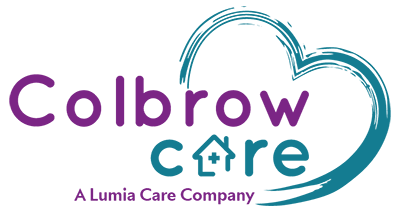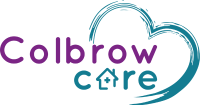HLTHPS006 assist clients with medication course trains care workers to oversee, assist and deliver medicine to their clients checking they take their medication in a safe and responsible manner. Keeping track of medication can be difficult for several reasons.
Ageing Australians may experience cognitive decline and memory loss and as a result, may not take their medication as and when directed. People living with disability may need physical support to take their medication or require support to follow instructions. Finally, anyone taking multiple medications can become easily overwhelmed and need help to assist with taking medication.
Medications are grouped by the effects they have on the body and their role in treatment.
Effects on the body:
- Depressants – slow down the central nervous system. This affects concentration, coordination, and responsiveness.
- Hallucinogens – affect the senses and change the way an individual sees, hears, tastes, smells or feels things. They distort reality.
- Stimulants – speed up the function of the central nervous system. This increases heart rate, blood pressure, body temperature, can reduce appetite and cause agitation and sleeplessness.
Role in treatment:
- Analgesics – relieve the symptoms of pain. Can be over the counter or prescription only. Predisposed to overuse and addiction.
- Inhalants – substances inhaled through the nose or mouth. Absorbed into the bloodstream very quickly and act on the central nervous system immediately.
- Opioids – relieve the symptoms of strong to severe pain as well as chronic pain. Prescription only and heavily controlled due to their highly addictive nature.
- Pharmaceuticals – substances used in the diagnosis, treatment, or prevention of disease and for restoring, correcting, or modifying organic functions. Prescribed by a doctor. Can be harmful and addictive if not used strictly as prescribed.

All medicines in Australia are classified or “scheduled”. Based on how freely they are made available to the public.
Medications with a low safety risk are not as closely regulated as those with a higher safety risk. This is to protect the public from harm and misuse. Medicines usually fall into schedule 2, 3, 4 or 8:
Schedule 2 includes pharmacy medicine. Found on shelves at pharmacies. Examples include cough suppressants and simple analgesics like aspirin, panadol, and ibuprofen containing at least 24 tablets.
Schedule 3 applies to pharmacist-only medicines which can be bought without a prescription from a pharmacist. These medicines are usually behind the pharmacy counter such as cold and flu preparations.
Schedule 4 applies to medicines that can only be bought with a prescription from an authorised healthcare professional. Available from a pharmacy or a hospital. For example local anaesthetics, and strong analgesics such as panadeine forte.
Schedule 8 applies to controlled drugs. These are medicines or chemicals that have strict rules around their manufacture, supply, distribution, possession, and use. Prescribed by an authorised healthcare provider with special permit. For example methadone, pethidine, fentanyl and morphine.

HLTHPS006 Assist Clients with Medication course
Medication is vital for many of our clients. It is therefore crucial that our community care team has care workers who are trained to assist with medication.
Australia has numerous organisations that offer a “assist clients with medication” course. This course is open to allied health professionals, care workers, and the general public. Designed to train people who are looking to enter the care industry.
The aim of the assist clients with medication course is to:
- Ensure care workers have the required knowledge to assist a client with their medication
- Assist and support the administration of a wide range of medications
- Understand the different groups of medication
- Ensure a care worker is competent and confident to complete the documentation associated with medication administration, and
- Understand and implement hygiene and relevant duty of care procedures.
What is covered in the HLTHPS006 Assist Clients with Medication course?
The HLTHPS0006 Assist Clients with Medication is the main unit of study. It provides individuals with the skills and knowledge needed to give medication assistance and complete medication documentation. It also involves supporting a client to self-administer medication.
What elements are studied in the HLTHPS0006 Assist Clients with Medication course?
The five elements covered in the HLTHPS0006 Assist Clients with Medication unit include:
1. Prepare to assist with medication
1.1 Determine one’s capacity to offer medication support based on the legal regulations and protocols of the organisation.
1.2 Identify who has the power to assign the job and who is in charge of the results. Determine what actions need to be taken in an emergency.
1.3 Verify that all necessary tools and medications required for the procedure are gathered, prepared for use, and current.
1.4 Verify with supervisor the authority to proceed with implementing the protocols for providing medication to clients.
1.5 Adhere to safety protocols to prevent and control the spread of infection.
2. Prepare the client for assistance with administration of medication
2.1 Explicitly explain assistance required to meet the personal needs of each client.
2.2 Identify the amount and type of supervision the client needs when taking medications. This must be done in accordance with the rules and responsibilities of the organisation.
2.3 It is important to ensure proper medication administration. Accurately greeting each client is a key part of this. Additionally, provide clear instructions on administrative procedures and prepare them for medication.
2.4 Verify client medications according to organisation procedures.
2.5 Check for any physical or communication changes in the client. Report any changes to the supervisor or health professional, prior to assisting the client with their medication.
2.6 Identify situations in which giving medication is not appropriate and consult with a supervisor or health professional.
3. Support clients with administration of medication
3.1 Remind client to administer their medication according to the prescribed schedule.
3.2 Assist clients in taking medication by preparing and administering the prescribed medications. Ensure compliance with legislation, organisation procedures, medication requirements and individual care plans.
3.3 Check medication is correct and confirm the client receiving it is correct. Verify the dosage is accurate, administered via the right route and given on time.
3.4 Supervise clients when taking medication and confirm ingestion or completion.
3.5 Document medication not being administered or absorbed via organisation procedures.
3.6 Fill out medication records in accordance with the guidelines set out by the organisation and the relevant regulations.
3.7 Monitor the client for any changes in their condition. Inform supervisor or medical expert as required by the organisation procedures.

4. Handle medication contingencies
4.1 Raise any issues regarding the management of medication to the relevant supervisor or medical expert as per the organisation procedures.
4.2 Monitor client reactions to medication. Report any changes and document all information. Address any issues according to the rules of the organisation and the advice of healthcare professionals.
4.3 Be able to recognise expired and degraded medication and follow procedures for safe and appropriate disposal.
4.4 Monitor and document any changes in a client’s condition, within essential timeframes in accordance with company policies.
4.5 In accordance with the guidelines set forth by the organisation, establish protocols for addressing any alterations in a client’s condition.
4.6 Observe any discrepancies with medication or clients. Promptly report them to the supervisor and follow their instructions for taking action.
4.7 Record discrepancies and address them according to organisation procedures.
5. Complete medication distribution and documentation
5.1 Discard waste in accordance with company guidelines and manufacturer instructions.
5.2 Collect used items, leftover medications and waste, and dispose of them safely as directed.
5.3 Adhere to infection control guidelines when cleaning and storing both empty and utilised medication containers and administration tools.
5.4 Adhere to protocols and rules when restocking medication doses and related items.
5.5 Store documents such as medication charts, care plans and treatment sheets as per organisation procedures.
5.6 Adhere to medication storage procedures as per the laws and one’s own responsibility.
Increasingly ageing Australians are opting to stay in their own homes instead of entering aged care facilities. As a result, community care workers with medication training are increasingly sought-after.
If you are considering working in the aged care, disability support and private nursing sector, contact Colbrow Care today on 1300 33 11 03!





